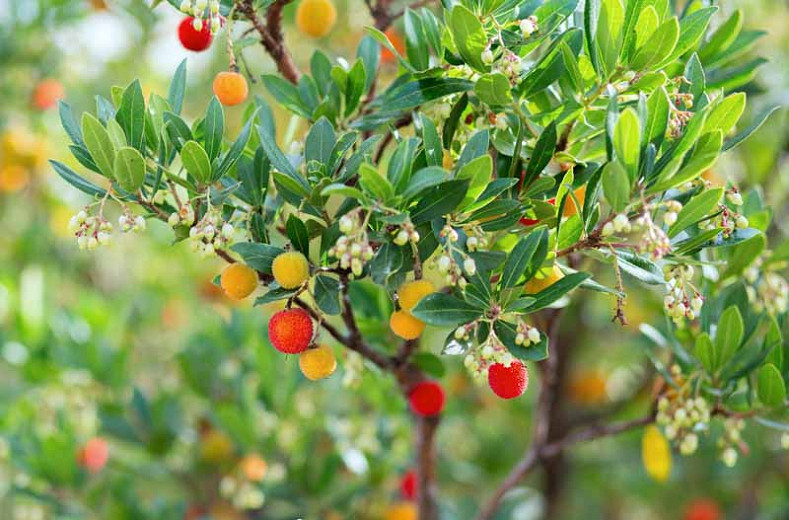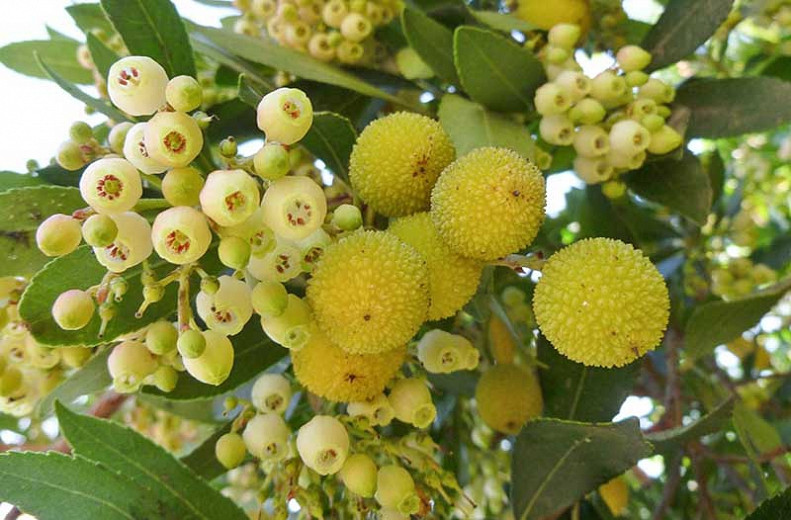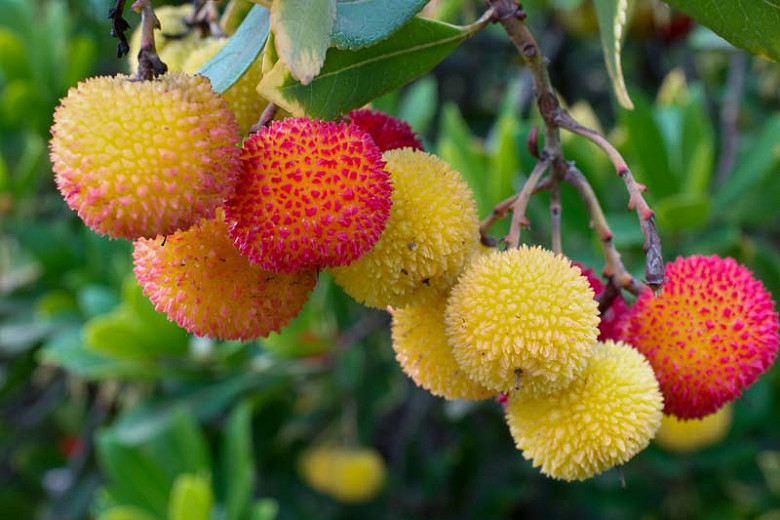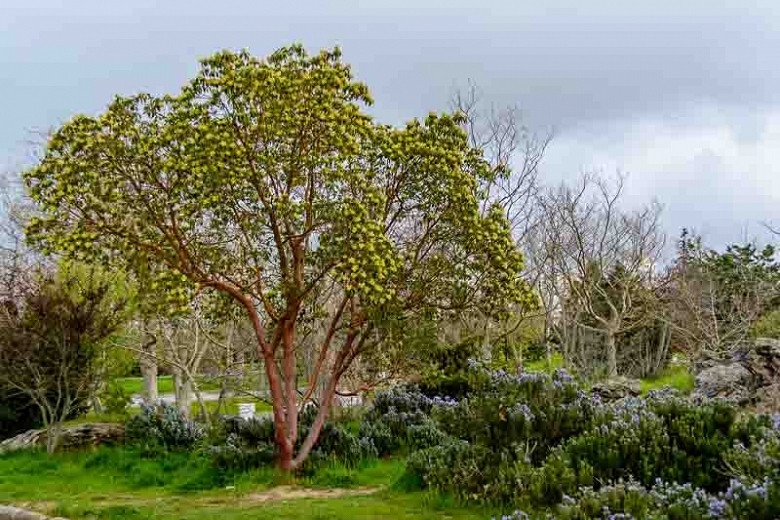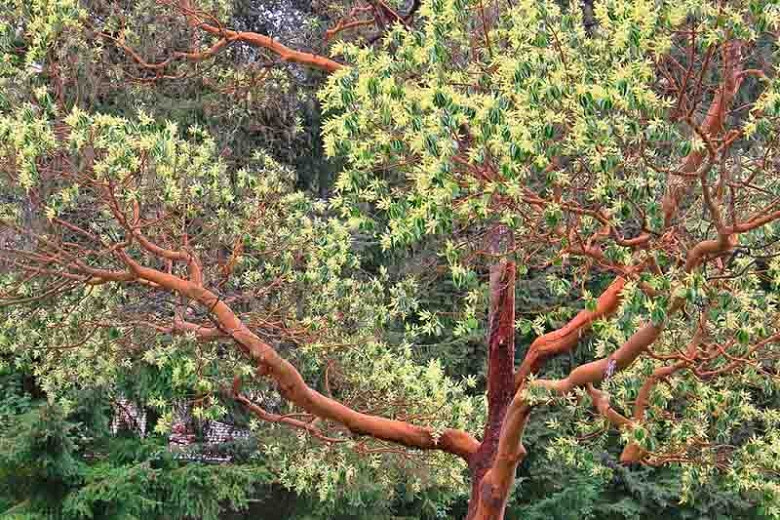Arbutus unedo (Strawberry Tree)
Noted for its remarkable flowers, fruit, leaves, and bark, Arbutus unedo (Strawberry Tree) is a charming, broadleaf evergreen shrub or small tree with four-season ornamental interest. From fall to midwinter, a profusion of drooping clusters of fragrant, bell-shaped, white flowers hang at the tip of the branches. Pollinated by bees, the round, 1 in. fruits (2.5 cm) appear in winter and gradually ripen to yellow then red in twelve months. They are often in color when the new attractive flowers begin to bloom in fall. While edible, the fruit is somewhat sweet but often bland and mealy. Particularly interesting is the gray-brown bark on mature trunks and branches, which peels and flakes to reveal an attractive cinnamon-colored inner bark. Lush and handsome, the evergreen foliage of red stemmed, dark green leaves, is glossy and leathery. Often becoming gnarled with age, Strawberry Tree makes a very attractive specimen tree with its picturesque, twisted appearance.
- Grows at a slow to moderate growth rate in a multi-stemmed form, but can be trained as a single trunk tree to 6-15 ft. tall and wide (180-450 cm).
- Easily grown in average, acidic, moist, well-drained soils in full sun to part shade. Tolerates the widest variety of soils and climates, but appreciates good drainage. Some drought tolerance once established.
- Great as a specimen plant, shrub borders, foundation plantings, hedges, Mediterranean gardens, coastal gardens or containers.
- Virtually disease free and pest free. Watch for aphids or leaf spot.
- Attracts hummingbirds, butterflies, and birds.
- Propagate by seed and semi-hardwood cuttings.
- Native from the Mediterranean to Ireland.
- Dwarf varieties include: 'Elfin King' – 5 ft tall (150 cm), flowers and fruits almost continuously; 'Oktoberfest' – 6-8 ft tall (180-240 cm) with deep pink flowers; 'Compacta' – 10 feet tall (300 cm)
Requirements
| Hardiness | 7 – 10 |
|---|---|
| Heat Zones | 6 – 9 |
| Climate Zones | 4, 5, 6, 7, 8, 9, 10, 11, 12, 13, 14, 15, 16, 17, 18, 19, 20, 21, 22, 23, 24 |
| Plant Type | Shrubs, Trees |
| Plant Family | Arbutus |
| Exposure | Full Sun, Partial Sun |
| Season of Interest | Spring (Early,Mid,Late)Summer (Early,Mid,Late)FallWinter |
| Height | 6' – 15' (180cm – 4.5m) |
| Spread | 6' – 15' (180cm – 4.5m) |
| Water Needs | Low, Average |
| Maintenance | Low |
| Soil Type | Clay, Loam, Sand |
| Soil pH | Acid, Neutral |
| Soil Drainage | Moist but Well-Drained, Well-Drained |
| Characteristics | Fragrant, Showy, Evergreen, Fruit & Berries |
| Native Plants | United Kingdom |
| Tolerance | Drought |
| Attracts | Bees, Birds, Butterflies, Hummingbirds |
| Garden Uses | Beds and Borders, Hedges and Screens, Patio and Containers |
| Garden Styles | Coastal Garden, Informal and Cottage, Mediterranean Garden |
